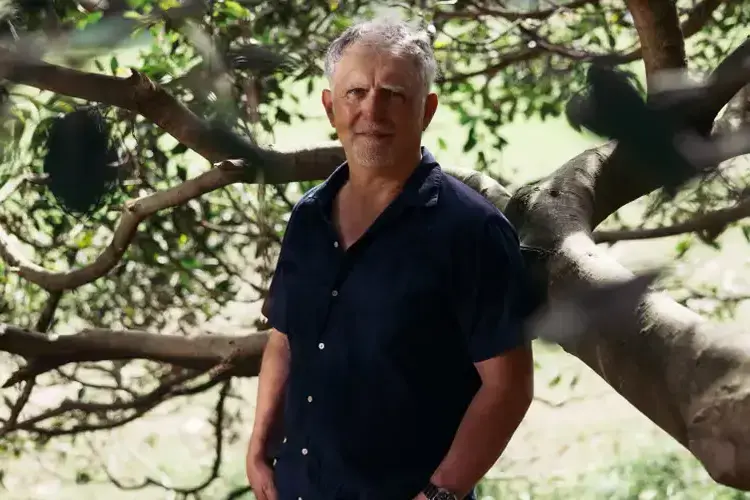
Australian philosopher of science Peter Godfrey-Smith reveals his favourite reads. Godfrey-Smith’s latest book Living on Earth is out now
By Peter Godfrey-Smith
Peter Godfrey-Smith, a renowned Australian philosopher of science, has concluded his three-part exploration of the origins of intelligence on Earth with his latest book, Living on Earth. Here he recommends his top books – some of which inspired and helped the writing of Living on Earth.
Where Song Began by Tim Low
A history of birds and birdsong, with an emphasis on Australia (where song began).
Revolutions that Made the Earth by Tim Lenton and Andrew Watson
A challenging book that was extremely helpful when writing Living on Earth. It covers the history of the Earth and life, with an emphasis on the effects of life on the cycling of chemicals (carbon, oxygen…) and the transformation of the planet.
Tracks by Robyn Davidson
An Australian desert crossing – 2,700km – by one woman, one dog and a few camels.
The Dawn of Everything by David Graeber and David Wengrow
A controversial recent book that rethinks key parts of the history of humanity, especially the transition to settled societies and farming. Someone elsewhere on this list (not George Scott) told me that he finds the book ‘morally self-satisfied’, and that’s accurate, but I was hooked by it anyway.
Against the Grain by George Scott
An earlier book about the transition to settled societies and farming, representing the picture that Graeber and Wengrow want to reject. Emphasises the costs to human happiness associated with the transition, especially the rise of inequality and coercion.
The Evolved Apprentice by Kim Sterelny
My favourite of the books by this important philosopher. This attempt to chart human evolution includes a powerful rethinking of ‘nature and nurture’ dichotomies.
Energy and Civilization by Vaclav Smil
A self-propelled history of how humans have obtained and used energy.
The Major Transitions in Evolution by John Maynard Smith and Eors Szathmáry
Many people, including me, were inspired to tackle evolutionary questions in new ways by this book.




